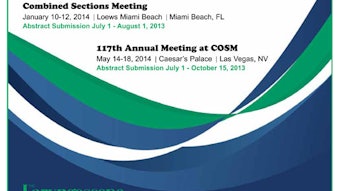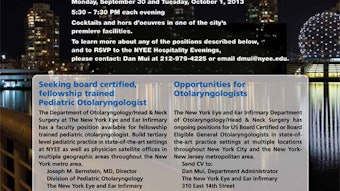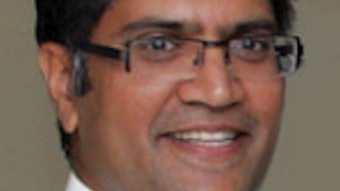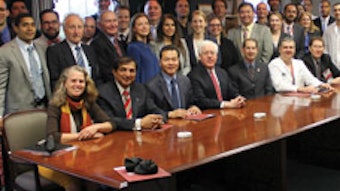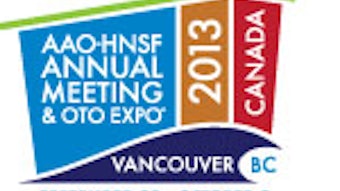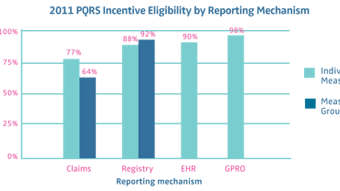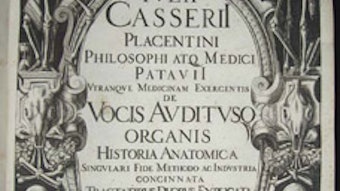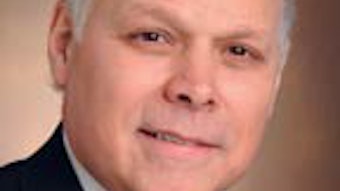Put Your Money Where Your Mouth Is: Directing Research Toward Targeted Evidence Gaps
Scott E. Brietzke, MD, MPHChair, OREBM As the saying goes, “putting your money where your mouth is” is the best way to prove you are serious about something. Members of the AAO-HNS/F can rest assured that the Academy is serious about improving the evidence base of our specialty and is offering its financial resources to prove it. As the AAO-HNS continues creating rigorous, high-quality, evidence-based clinical practice guidelines (CPG), the Outcomes Research and Evidence-Based Medicine (OREBM) Committee, in conjunction with Academy research leadership, has been working on a parallel effort to enhance the quality and evidence base of our specialty. Identifying evidence gaps within our specialty for which there is insufficient evidence to guide clinical decision-making is an important component of advancing research and improving outcomes. In a perfect world, a significant proportion of active research would be directed toward targeted gaps where the lack of evidence negatively affects patient care. However, as everyone knows, serious research costs serious money. The Maureen Hannley Research Grant is offered each year as part of the AAO-HNSF’s Centralized Otolaryngology Research Efforts (CORE) grant program. Named in honor of former AAO-HNSF chief research officer Maureen T. Hannley, PhD, the grant was created in 2007. Under direction of the Research Advisory Board (RAB) and John S. Rhee, MD, MPH, coordinator for Research & Quality Improvement, the OREBM Committee worked closely with a group of the CORE grant program leaders during the last year to revise the Maureen Hannley Research Grant criteria, which now offer special consideration to investigators who target known evidence gaps within their project proposals. It also provides investigators the opportunity to utilize the Creating Healthcare Excellence through Education and Research (CHEER) network to engage both academic and community sites in their proposed study. These components were included in new Funding Opportunity Announcement (FOA) released during the 2013 grant cycle. We are pleased to announce this year’s grant awardee has taken advantage of this opportunity. Special congratulations are extended to Milan R. Amin, MD, of New York University, who is this year’s Maureen Hannley Research Grant award recipient. Dr. Amin’s successful application proposes a Level 1 study that will address the evaluation and treatment of patients with hoarseness. Dr. Amin references the recent Hoarseness (Dysphonia) Clinical Practice Guideline in his grant application abstract. “The recent Clinical Practice Guidelines (CPG) for Hoarseness put forward by the AAO-HNSF pointed out several major deficiencies in the evidence base related to the evaluation and treatment of patients complaining of hoarseness. One of these deficiencies is regarding the use of steroids for the treatment of patients with these complaints…In this study, we propose to study the comparative effectiveness of steroids in speeding and enhancing the recovery of non-surgically treated vocal fold lesions. To do this, we propose a randomized clinical trial comparing patients who undergo traditional voice therapy for the treatment of phonotraumatic vocal fold lesions and those who undergo combined modality therapy incorporating the use of steroids prior to the initiation of voice therapy. We hypothesize that the use of pre-therapy steroids will hasten and enhance the efficacy of traditional voice therapy and that steroid treatment alone will have a positive effect on voice outcomes.” Dr. Amin will receive a $50,000 award (with a possible extension to receive another $50,000) to conduct his study, which will expectantly provide high-level, definitive data to address the evidence gap. Dr. Amin’s vision and commitment to evidence-based practice is applauded and will hopefully be the first of a long succession of awarded Maureen Hannley Research Grant proposals addressing important evidence gaps within our specialty. Congratulations again to Dr. Amin! We encourage AAO-HNS members, particularly junior faculty members who have completed their residency or fellowship within the last seven years, to apply for this wonderful opportunity. The Maureen Hannley Research Grant is awarded to one recipient each year, so next year could be your opportunity to design a proposal that will address another important evidence gap and improve outcomes in our specialty. In return, the Academy will gladly put its money where its mouth is.
Scott E. Brietzke, MD, MPH
Chair, OREBM
As the saying goes, “putting your money where your mouth is” is the best way to prove you are serious about something. Members of the AAO-HNS/F can rest assured that the Academy is serious about improving the evidence base of our specialty and is offering its financial resources to prove it. As the AAO-HNS continues creating rigorous, high-quality, evidence-based clinical practice guidelines (CPG), the Outcomes Research and Evidence-Based Medicine (OREBM) Committee, in conjunction with Academy research leadership, has been working on a parallel effort to enhance the quality and evidence base of our specialty. Identifying evidence gaps within our specialty for which there is insufficient evidence to guide clinical decision-making is an important component of advancing research and improving outcomes. In a perfect world, a significant proportion of active research would be directed toward targeted gaps where the lack of evidence negatively affects patient care. However, as everyone knows, serious research costs serious money.
The Maureen Hannley Research Grant is offered each year as part of the AAO-HNSF’s Centralized Otolaryngology Research Efforts (CORE) grant program. Named in honor of former AAO-HNSF chief research officer Maureen T. Hannley, PhD, the grant was created in 2007. Under direction of the Research Advisory Board (RAB) and John S. Rhee, MD, MPH, coordinator for Research & Quality Improvement, the OREBM Committee worked closely with a group of the CORE grant program leaders during the last year to revise the Maureen Hannley Research Grant criteria, which now offer special consideration to investigators who target known evidence gaps within their project proposals. It also provides investigators the opportunity to utilize the Creating Healthcare Excellence through Education and Research (CHEER) network to engage both academic and community sites in their proposed study. These components were included in new Funding Opportunity Announcement (FOA) released during the 2013 grant cycle.
We are pleased to announce this year’s grant awardee has taken advantage of this opportunity. Special congratulations are extended to Milan R. Amin, MD, of New York University, who is this year’s Maureen Hannley Research Grant award recipient. Dr. Amin’s successful application proposes a Level 1 study that will address the evaluation and treatment of patients with hoarseness. Dr. Amin references the recent Hoarseness (Dysphonia) Clinical Practice Guideline in his grant application abstract. “The recent Clinical Practice Guidelines (CPG) for Hoarseness put forward by the AAO-HNSF pointed out several major deficiencies in the evidence base related to the evaluation and treatment of patients complaining of hoarseness. One of these deficiencies is regarding the use of steroids for the treatment of patients with these complaints…In this study, we propose to study the comparative effectiveness of steroids in speeding and enhancing the recovery of non-surgically treated vocal fold lesions. To do this, we propose a randomized clinical trial comparing patients who undergo traditional voice therapy for the treatment of phonotraumatic vocal fold lesions and those who undergo combined modality therapy incorporating the use of steroids prior to the initiation of voice therapy. We hypothesize that the use of pre-therapy steroids will hasten and enhance the efficacy of traditional voice therapy and that steroid treatment alone will have a positive effect on voice outcomes.”
Dr. Amin will receive a $50,000 award (with a possible extension to receive another $50,000) to conduct his study, which will expectantly provide high-level, definitive data to address the evidence gap. Dr. Amin’s vision and commitment to evidence-based practice is applauded and will hopefully be the first of a long succession of awarded Maureen Hannley Research Grant proposals addressing important evidence gaps within our specialty. Congratulations again to Dr. Amin! We encourage AAO-HNS members, particularly junior faculty members who have completed their residency or fellowship within the last seven years, to apply for this wonderful opportunity. The Maureen Hannley Research Grant is awarded to one recipient each year, so next year could be your opportunity to design a proposal that will address another important evidence gap and improve outcomes in our specialty. In return, the Academy will gladly put its money where its mouth is.
